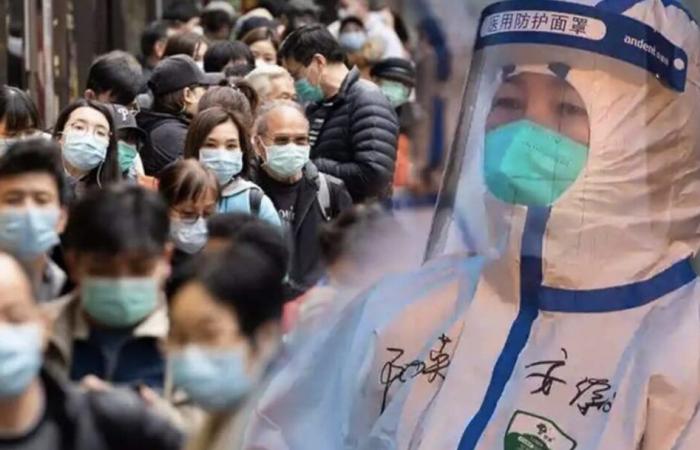For several days now, worrying rumors have been circulating on social networks about a mysterious epidemic in China that is putting certain hospitals and crematoriums in a state of overload. Videos showing endless hospital lines with patients wearing masks and parents holding their sick children have fueled speculation. Some are talking about a return of the pandemic, others are concerned about the spread of several respiratory viruses, including human metapneumovirus (HMPV). But what do we really know about this situation?
Scenes similar to those of the first wave of Covid-19
The images circulating on Instagram, TikTok and X were seen by millions of people. We see impressive scenes: queues in overcrowded hospitals, masked patients and overcrowded crematoriums. Some news reports indicate that a state of emergency has been declared to combat this mysterious epidemic. However, this information is not confirmed by either the Chinese authorities or the World Health Organization (WHO).
The videos shared on the networks often come from different times and places, and some of them date back to 2022, during the Covid-19 epidemic in China. Others, from late 2023, show images from the children’s hospital in northern China, when respiratory infections were circulating, primarily affecting young children. Additionally, most viral posts point to unreliable sources such as The Epoch Times, which is known for spreading conspiracy theories.
So what is really happening in China? The virus in question, human metapneumovirus (HMPV), is not new. First identified in 2001, this respiratory virus causes symptoms similar to those of a cold or flu: cough, fever, stuffy nose and fatigue. Although most infections are mild, this virus can cause serious complications such as pneumonia, particularly in infants, the elderly, and those with weakened immune systems.
An increase in HMPV cases has been observed in China, particularly in the northern provinces, where children are particularly affected due to winter temperatures and indoor activity. Chinese authorities have not declared an emergency but have set up a pilot program to better track pneumonia of unknown cause and treat cases more effectively. The Chinese Foreign Ministry reassured the population by pointing out that respiratory infections are common in winter and the situation is less serious than last year.
Not a global crisis, but a situation worth monitoring
Globally, the World Health Organization (WHO) has not declared this outbreak a global health crisis. Although the situation in China has attracted attention, HMPV is considered a seasonal virus, similar to other respiratory viruses. Warnings have been issued in some neighboring countries such as Cambodia and Taiwan about increased risks to children and vulnerable people. However, no pandemic warning has been issued and health authorities, particularly in India, have assured that this virus will not cause widespread panic.
Chinese authorities continue to manage the situation with increased surveillance measures and ensure that hospitals and clinics have the necessary resources to deal with this winter outbreak. It is important to remember that, unlike Covid-19, there is no specific vaccine for HMPV and treatment relies primarily on symptom management.
In summary, although the images of queues and overcrowded hospitals are reminiscent of the early days of the Covid-19 pandemic, it is important to nuance the current situation. The virus responsible for this epidemic, human metapneumovirus, is a seasonal respiratory virus whose symptoms are generally mild. No state of emergency has been declared, and China, like the WHO, is downplaying the seriousness of the situation and calling it a recurring winter phenomenon.
Even if the situation requires monitoring, there is currently no reason to speak of a new pandemic. Global health authorities are closely monitoring the development of individual cases, but there is currently no risk of a global health crisis. It is therefore important to distinguish facts from speculation, especially on social networks, and to follow the recommendations of the relevant authorities.






